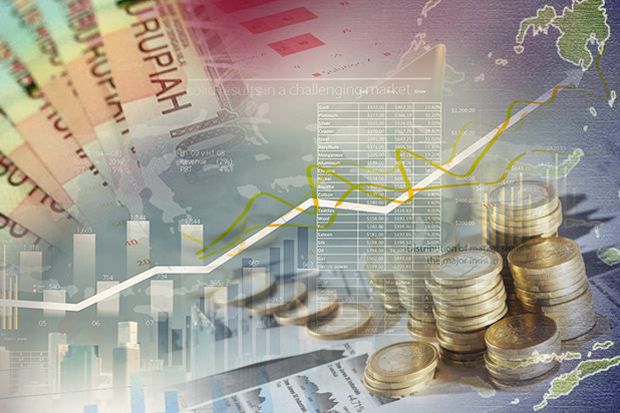The Government Continues to Encourage Community Economic Development Through MSME Financing
The Government of the Republic of Indonesia (RI) continues to encourage the development of the people’s economy in the country, one way is through financing schemes for Micro, Small and Medium Enterprises (MSMEs) based on fintech and waqf.
Indeed, so far, one of the most fundamental problems in economic development efforts in Indonesia is how stagnation occurs among MSME players behind the industrial progress that is currently happening increasingly massively in the world.
Not a few of the MSME players are currently developing problems in terms of financing which are challenges that must be resolved immediately, including in relation to efforts to build alternative financing for these MSMEs.
Responding to the results of this very challenging research issue, the Head of the Governance, Economic and Community Welfare Research Organization (OR TKPEKM) of the National Research and Innovation Agency (BRIN), Agus Eko Nugroho outlined several things regarding efforts to strengthen the national production base which is not only limited to only at the corporate level, but also at the people’s economy.
So far, it turns out that Waqf has great potential, including in the form of Zakat, Infaq and alms which can become an alternative solution to further boost the financing of MSME players, apart from that it can also be further accelerated in the interests of building their financing.
Then, Lecturer at the Graduate School of the Sumbawa University of Technology, Yolli Eka Putri, delivered a presentation that Peer-to-Peer (P2P) Lending could be an opportunity. Because the concept was founded in the spirit of mutual help and is also aimed at MSME business actors.
Furthermore, Lecturer at the Faculty of Economics and Business (FEB) at the University of Indonesia (UI), Lisa Listiana, explained that waqf could be an alternative for financing MSMEs in the country. This is because the role of waqf itself in the national economy turns out to have great potential from a socio-economic perspective, namely up to 180 trillion per year. Therefore, the concept of waqf has the potential to become an alternative and solution to current global economic issues, namely inequality.
On the same occasion, BRIN’s Main Expert Researcher, Syahrir Ika, explained that there are other alternatives for financing MSMEs based on people’s economics. According to him, people’s economy or state of people’s economy is an economic system that includes concepts, policies and development strategies which of course focus on empowering the people’s economy and is able to create economic justice and increase the welfare of society at large.
The people’s economy itself is a people’s economic actor in the form of cooperatives and MSMEs, which does not include large businesses. Data shows that there are more than 64 million types of businesses, of which 99.9 percent are Micro, Small and Medium Enterprises.
This is very inversely proportional to large businesses which is only at 0.0008 percent. Then, based on the structure of labor use, of the 144 million workforce, MSMEs contribute 97 percent and large businesses only 3 percent.
However, the irony is that from this data, it turns out that as much as 6,686 trillion Rupiah is in the banking credit structure, in fact MSMEs only have a share of 20 percent, while the remaining 80 percent is for large types of business.
Therefore, the Indonesian Government is focusing on continuing to develop the economy with a people’s system, which in essence will also build the people’s economic ecosystem such as business infrastructure, capital, work networks such as business networks, marketing, information, management and technology as well as capacity building or resources. human resources (HR) and people’s economic institutions.
Because they have a very important role for all people in Indonesia, cooperatives as one of the pillars of the people’s economy are one of the conditions for realizing national independence. The implementation of cooperatives is also very much in line with the implementation of the philosophy of mutual cooperation, where cooperatives can leverage and create prosperity for all their members.
However, it turns out that based on existing data, in Indonesia only around 10 percent of people join cooperatives. As many as 73 percent of millennials have never been members of a cooperative and only around 6 percent have become members of a cooperative. So public enthusiasm for cooperatives clearly needs to be increased.
In response to this, the Indonesian Government has made several efforts, such as encouraging the realization of modernization of cooperatives as stated in the 2020-2024 RPJMN, where the target for modern cooperatives to be developed by 2024 is 500 cooperatives.
Not only that, but the Government is also rebranding cooperatives so that they are in line with the times, more innovative and adaptive through Law Number 6 of 2023. The Government also continues to encourage the existence of the Independent Indonesia Movement through various efforts including empowering the people’s economic system. through cooperatives.
Indeed, MSMEs themselves have been one of the supports for national economic movements so far, so their existence is very important. However, there are several obstacles that make it stagnant, such as lack of financing. Therefore, the Government continues to encourage the development of the people’s economy to help finance MSMEs.
